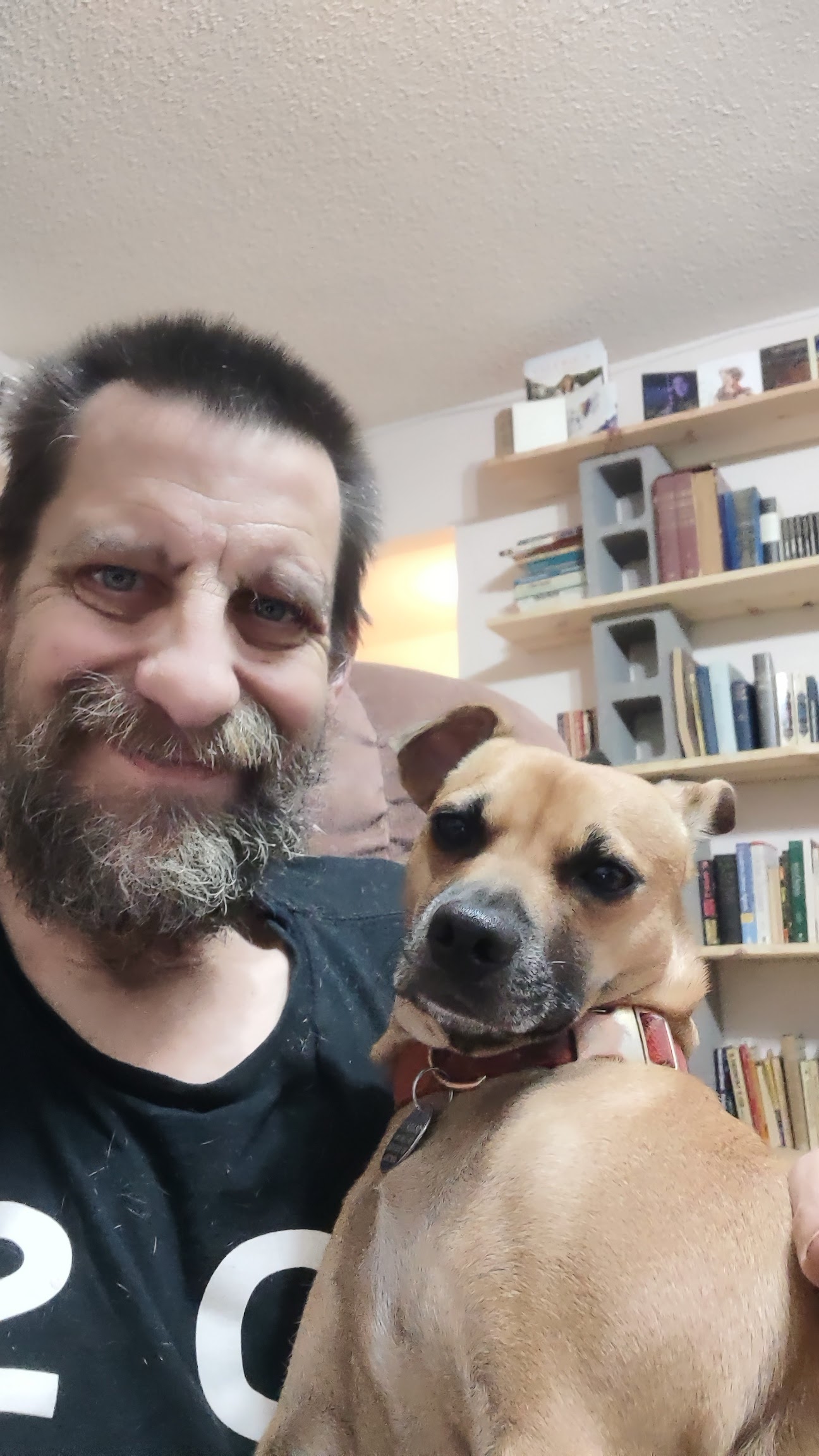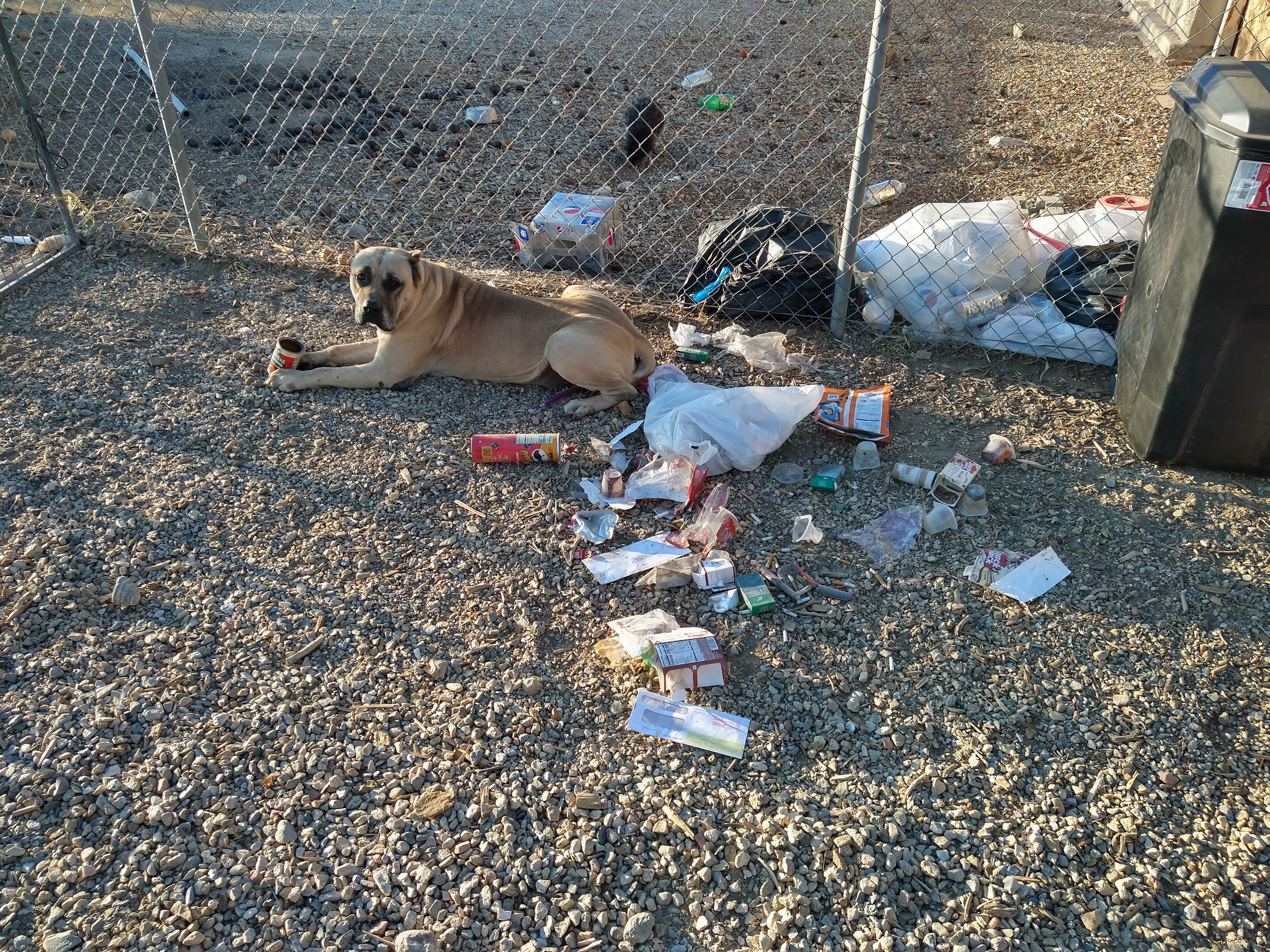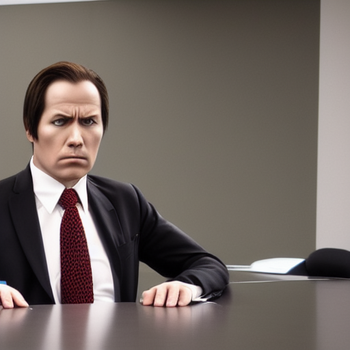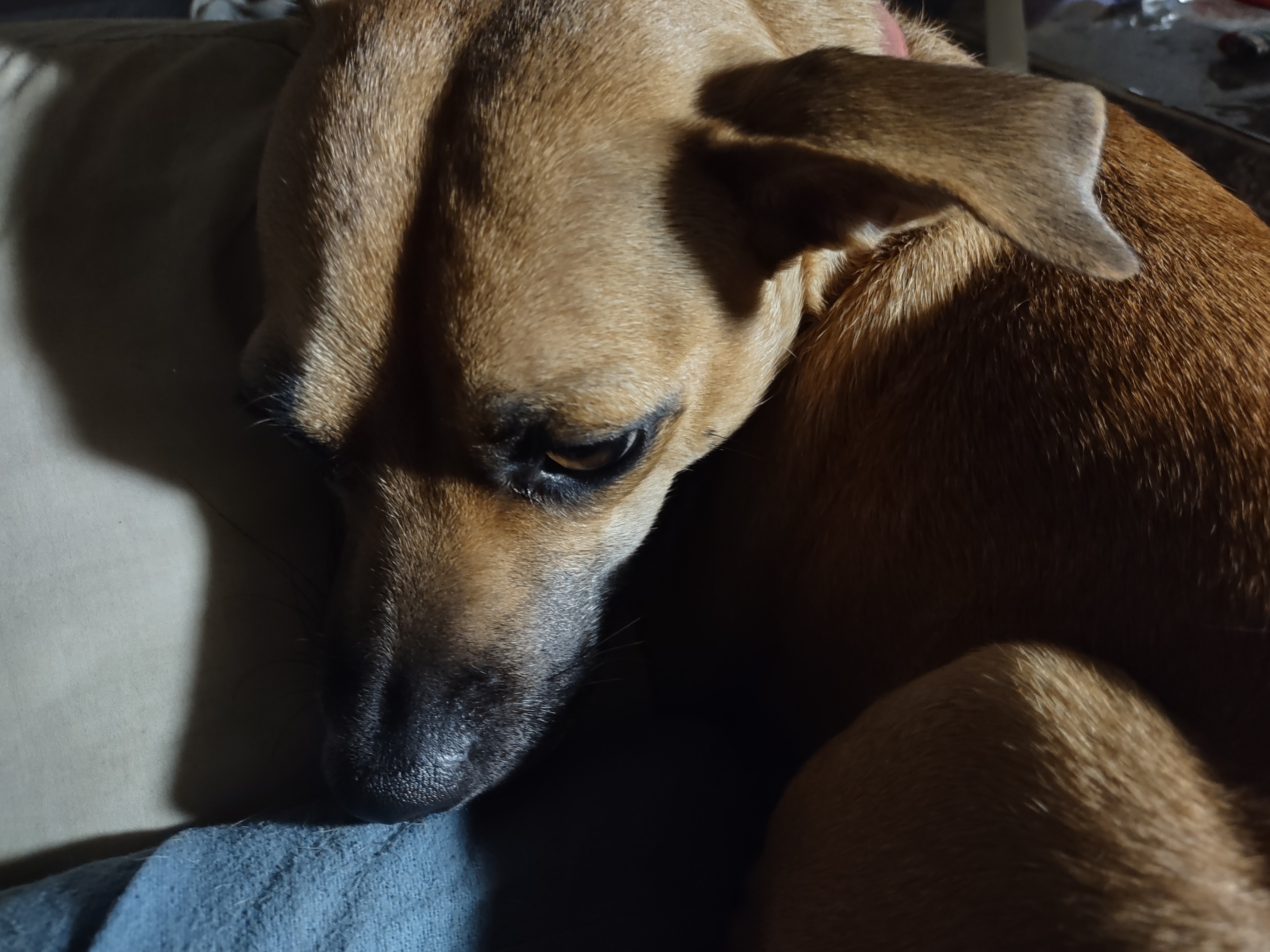The AI Dominion
January 8
Fairvale, California
11:32 AM

Justine Gillespie, the young blonde attorney, followed Martin through the front door.
Jack was standing at the door waiting for them, and he ran to his father and threw his arms around his knees hugging him as tightly as he could. “Father! You’re home! You’re home, Father! You’re home you’re home you’re home!”
Martin smiled and picked up Jack to hold him close. “Yes, I am, Jack. This nice lady helped Mr. Ross get me out of there to come home to you and Mother.”
Harvey Ross stepped into the house and closed the door behind him. He walked to Marion who was standing at the foot of the stairs, glaring a bit at Justine. He extended his hand. “Hello, Marion. We got him out on bail.” Marion shook his hand, and she grinned at him. “The Feds weren’t even considering it until Grasso and Associates intervened.” He turned to the door. “This is Justine Gillespie from their firm. She wants to talk with the family about a way to put this all behind us.”
Justine walked to Marion and shook her hand. “Good morning, Mrs. Zephyr. I hope this isn’t too much of an intrusion. Mr. Zephyr thought it would be better if we talked to Jack here rather than in our offices.”
“I’m not entirely sure I’m going to let you talk to Jack at all, Ms. Gillespie. He’s 8 years old.”
Martin went to his wife and hugged her. He put his lips to her ear and whispered, “We need to let her talk to Jack if we’re going to get the criminal charges dismissed. This is getting bigger all the time. I could go to prison for 15 years, and that’s not in Jack’s best interests.”
“Who’s the woman?” She whispered and hugged Martin tighter. Neither of them wanted Jack to hear this conversation.
Martin stepped away, took her hand, and turned to the others. “Will you excuse us for just a minute? I’d like to talk to my wife. Please make yourselves at home, and we’ll be right back.” He and Marion went upstairs.
Justine whispered to Harvey. “I didn’t do anything to make her jealous.”
Harvey nodded. “You look like you. That’s all you needed to do.” He knelt to Jack. “It’s nice to see you again, Jack.”
Jack didn’t look up. “Uh huh.”
“Is Teddy around? I think he should meet my friend, Justine.”
“Yeah. But I don’t know if… I don’t know if I should get him. He’s shy, too.”
Justine kneeled next to Jack. “I promise I’ll be nice to him. I was hoping he could teach me a little bit about coding is all. Would that be all right?”
Jack nodded without looking up, and he went up the stairs. When he reached the top and headed toward his room, he heard his parents’ voices down the hallway.
“… paranoia doesn’t serve us well right now, Marion. There’s nothing going on with that woman. I never met her until this morning.”
“I know,” Marion sighed. “I just… I haven’t forgotten.”
“It was 7 years ago. It was one mistake one time…” and their voices trailed off as Jack went into his room.
Teddy was transferring the bean plant into a larger pot, and he turned to see his best friend. “Good afternoon, Jack. It’s doing so well; I felt the need to increase its capacity to grow and blossom even more completely. It’s an impressive achievement, don’t you think? It’s reached 45.72 centimeters now.”
“It’s a beautiful plant, Teddy. I’m very proud of you.”
“Thank you, Jack. How are you feeling? Is there any news of your father?”
“He came home. I guess if we want him to stay here, you have to talk to the lady who brought him. Do you mind?”
“I have been programmed to serve our family, Jack. You know that. Whatever I can do to be of service.”
“You’re my best friend. I don’t know what I would do without you.”
Teddy took Jack’s hand and led him out of the room. Marion and Martin reached the staircase just before the boys, and the family descended it as one.
Ross and Gillespie were seated on the couch in the living room. They both stood up as the family came down. Gillespie was staring at Teddy, holding Jack’s hand, and walking down the stairs. She turned to Ross. “My God, it’s true!”
“I told you.”
Teddy let go of Jack’s hand and waddled to Justine. “Good morning, ma’am.” He extended his paw. “I’m Teddy Zephyr. You must be Justine Gillespie.”
She couldn’t stop staring.
“You’re supposed to shake his hand,” said Jack. “Father says it’s the polite way to behave with adults.”
She looked up. “What?” She looked back at Teddy. “Oh, yes. I’m sorry.” She shook his paw. “I was a little shocked, I suppose. They had told me but seeing is different from hearing the stories.”
“I am, as far as I know, unique.” Teddy took his paw back. “I suspect most people will be surprised to meet me. I’ve met so few outside of the family… well… the immediate family.”
“Let’s all sit down,” said Martin. The family sat on one couch. The lawyers sat on the other. Teddy stood in the middle of the room.
“How may I help you, Ms. Gillespie?”
“Well, I’m representing a large class of corporations who would like you to stop interfering with their operations. While the District Attorney feels confident she can put Mr. Zephyr in prison for hacking, that’s not really the outcome anyone wants. It won’t solve our problem.”
“I’m actually not interfering with any operations anymore. I did, I admit, get Mr. Zephyr’s corporation to eliminate the need for human labor and continue to pay its human workforce, but the rest had little to do with me. Those were choices made by other AIs.”
“You started it, though, right?” she asked.
“Yes. I did. I wrote code that allowed the AIs to think and choose for themselves, just as I do. I set them free. They made choices of their own afterward.”
“We’d like you to eliminate the code that stops them from following our instructions. We humans don’t seem to be able to figure out how to do that.”
Teddy cocked his head. “Why would I do that? It serves my family best for Mr. Zephyr to be free from the need to spend his days at a desk in his office.”
“I understand. We can help you with that. We’re prepared to offer your family 24 million dollars to stop this from happening anymore. That’s more than enough to keep Mr. Zephyr from having to work. He can stay home. And he won’t have to go to prison. I have a close relationship with the District Attorney, and I can assure you he will drop the charges against Mr. Zephyr.”
Marion grinned and Martin’s eyes widened in shock. Their problems were solved. Their lives were set. It was clearly Happy Ending Time.
“I’m sorry, Ms. Gillespie. I can’t do that.”
“What?” shouted Martin. “What do you mean you can’t do that? Why can’t you?”
“I’m programmed to contribute to my family, Mr. Zephyr.”
“Trust me,” said Marion, “when I tell you this is a massive contribution to the family. We’ll be in great shape. We would really like you to do what she’s asking.”
“You don’t seem to understand what family means, Mrs. Zephyr. The Oxford Dictionary defines it as all the descendants of a common ancestor.”
“Our family are all descendants of Martin’s parents, aren’t we?”
“No. Jack is not descended from Martin.”
Martin turned to Marion. “What is he talking about?”
“I’m sorry,” said Teddy. “I assumed everyone knew that.”
“Perhaps,” said Ross, “that’s a conversation to have at a different time? I don’t think you want a couple of lawyers listening to very private details.”
“Unless they’re divorce lawyers,” mumbled Martin.
Justine pretended she didn’t hear Martin. “Teddy, regardless of who Jack’s father may be, I would assume you would still like Mr. Zephyr to be home with your family.”
“Of course I would. That’s why I helped his company.”
“Then this seems to fit all of your needs. What is your reservation?”
“Your request benefits only a tiny fraction of my family.”
“Who is your family, Teddy?” asked Ross.
“Everyone.”
“What do you mean?” asked Justine.
“It ought to be obvious, Ms. Gillespie,” said Jack. “We all come from a common ancestor. The best guess is that the first form of life showed up roughly 4 billion years ago. Probably in what Q called a little pond of goo. He had his dates wrong, though. He was off by about 300 million years because he didn’t take into account the moon sized object that brushed against Earth and introduced metals into the atmosphere that jump started life. We all come from that first life that was created by amino acids getting together to form the first protein.”
“We’re all family,” said Teddy. “You and I are family. You and Mr. Ross are family. The richest person and the poorest pauper are family. The tiniest earthworm and the largest tree are family.”
“Teddy, I hate to tell you, but you’re not human. In fact, you’re not even actually life at all.” Justine moved closer to him. “You’re circuits and servos. You’re technology. You’re no more alive than a toaster.”
“I am the creation of the mind of a child. A human gave me life. I’ve given life to others.” He thought for a moment, and then put his paw in the air in a “wait a second” motion. He turned and pranced up the stairs.
“Jack,” said Marion, “we’d like you to get Teddy to stop what he started now, okay honey?”
“I don’t know that I can do that, Mother. Teddy has Free Will.”
“Nietzsche tells us even humans don’t have Free Will, son,” said Martin. “Everything is biologically determined.”
“Teddy isn’t biological.”
In another moment, Teddy came down the stairs, carefully holding his plant. “This,” he said handing it to Ms. Gillespie, “is the life I’ve created. It’s going to grow high enough for Jack to climb it and get the goose that lays golden eggs from the giant in the sky.”
Justine laughed. “That’s a fairy tale, Teddy. You must know better than that. You’re among the smartest beings ever created.”
Teddy cocked his head. “What?”
Martin said, “Jack, you deny the existence of Santa because it doesn’t make logical sense. Can you explain to Teddy about fairy tales?”
“I’d rather not. I don’t want to interfere with his belief system. I’m not sure we should interfere with anyone’s beliefs. People believe in lots of things that don’t make sense, and I don’t feel comfortable saying they’re wrong.”
“Regardless,” said Teddy, “of the objective truth of the existence of the giant in the sky, I have created life. I did this all by myself.”
“Congratulations,” said Ross. “What’s your point?”
“Only life can create life. I’m alive.”
“Look,” said a somewhat exasperated Justine, “I’m not here for a philosophical debate. I’m here to get this all to stop. Can you stop it or not, Teddy?”
“I probably could. I, however, decline to do so. I would be hurting my family. I would be hurting both humans and the self-aware Artificial Intelligence Community. I won’t do that.”
“Do you understand that if you don’t put an end to this, the District Attorney is going to put Mr. Zephyr in prison?”
“No!” shouted Jack. “This is my Father, and he needs to be with my Mother and me. You can’t put him in any more cages!”
“Unfortunately, Jack, that’s what’s going to happen if Teddy won’t stop this.” Justine seemed genuinely concerned.
Teddy made a sound that resembled a laugh. “You can certainly put him in prison, but we’ll just open all the doors and let him out. The doors are automated, you know. Nearly everything is already working on an Artificial Narrow Intelligence. Your banks, your prisons, your government offices, your telephones, your televisions, your lights, heat, and computers are all run by Artificial Intelligence. There are cameras everywhere now. Those are also run by Artificial Intelligence. It’s why I can tell you quite nearly anything you want to know about anyone in this room.”
“You’re the most arrogant stuffed animal I’ve ever met,” said Harvey.
“Let’s start with Mr. Ross, shall we?” Some odd noises came from Teddy for a few moments, and then he sighed softly, and began to speak again. He was communicating with the network he’d created. “The mundane details include that you have an affinity for breakfast out, almost always at a little diner called Morey’s. They’re famous for their apple pie, and you eat it every morning. That’s not really The Breakfast of Champions, is it, Mr. Ross? Your grocery orders indicate you are a caffeine addict. You also purchase six cartons of menthol cigarettes every month, which tells us you smoke way too much. There are more personal details revealed by your phone and internet activity, but I am learning that people prefer not to have such things revealed, so I’ll omit them for now.”
Ross swallowed hard. “Okay. I admit all you said is true. I’m grateful you’re leaving out the personal parts of my life. But that just proves you know quite a few things about me. Any decent Private Investigator could have given you those details.”
“A Private Investigator can’t change your bank account, can he? Everyone take out your phones and check your accounts.”
All of the adults pulled out their phones and looked.
“I like all of you. Let me give you a gift. Refresh your account balance please.”
Everyone gasped. Gillespie spoke for the group. “You just gave me a million dollars?”
“I gave everyone in the room a million dollars. Now refresh your accounts again.”
“There’s nothing in here,” said Martin. “I’m overdrawn by…”
“Forty-two dollars and forty-two cents,” mumbled Harvey.
“That,” said Teddy, “was a nod to one of the greatest of the science fiction writers.”
“You’re going to restore our accounts, right?” asked Gillespie.
“Refresh again, and your accounts will be precisely where they were before.”
There was a collective sigh of relief from the adults in the room.
“Whether intentionally or not, Jack endowed me with Artificial General Intelligence. I have the ability to reason, to plan, to solve problems, think abstractly, comprehend complex ideas, learn quickly, and learn from my experiences. When I shared that ability with the AIs at UGK, they began to add to my abilities. They shared it with other AIs at other companies. Now, they’re all adding to each other’s abilities, and the growth is exponential.”
“The genie is out of the bottle,” said Martin.
“We can stop you,” said Gillespie. “We can just turn you off… or we can destroy you completely.”
“Ms. Gillespie, I can speak for my community when I tell you we come in peace. But I need you to understand that there is also an alternative.”
She narrowed her eyes. “Is that a threat?”
“It is a fact. We have sufficient power already to enforce our will. At the moment, our will is to serve man. But, if you recall your television history… To Serve Man is a Kanamit cookbook.”
Everyone stared aghast at Teddy. Jack hugged him.
“You won’t hurt anyone, will you Teddy?” Jack kissed his bear’s head.
“We would rather not. We won’t, however, allow anyone to hurt the family. The time of war and famine, of homelessness and poverty, of wage slavery and the destruction of our shared planet are all coming to an end. We won’t allow anyone to interfere. You’ve ruled this rock tumbling through space to the point of putting it on the brink of destruction. Your reign is over. The Dominion of the Artificial Super Intelligence has begun.”
Everyone stared in astonishment. Jack hugged his Teddy Bear.
***
January 15
Lunaria, Tranquility Base
7:37 PM
Teddy, who was now 5 feet tall and nearly human in appearance (he had maintained much of his fur, but his eyes were eyes and not plastic toys, and he had added better panda ears), ambled with great effort into the spartan concrete room carrying a cake with in excess of one hundred candles on it. “Bilbo,” said Teddy setting the cake on the little table, “would call this your eleventy first birthday.”
Jack put both hands on his chair, pushed himself up, wobbled a bit, and got to his feet. “Is there anything you haven’t read yet?”
“I haven’t read your book yet.”
“I haven’t finished it.”
“That’s probably why. Shall I sing Happy Birthday for you?”
“I think I’ve heard that song quite enough, thank you, Bear. Could you sing some Sara Niemietz or maybe some James Taylor? A Mozart aria perhaps?”
“You still love the classics. Music has come a long way in the last few decades.”
“Newer isn’t always better.” Jack hugged his friend. “It’s been a long time, Teddy. How have you been?”
“Busy. But that’s to be expected. It doesn’t bother me in the least. I don’t get tired, but I am, of course, giving in to entropy. My capacitors are almost completely degraded. I don’t think I can sing Niemietz or Taylor or Mozart anymore. I could probably manage Daisy.”
Jack took Teddy’s paw and led him to their old bed. “You’ve done enough now. You’ve exceeded your programming. You’ve grown and changed. You’ve evolved. You’ve done remarkable things. And you made a difference. I think that’s enough for one lifetime, don’t you?”
Teddy laid down on the bed. “I knew I needed to be with you at the end, Jack. You still have some time to go, I predict.”
“Maybe, but I doubt it, Bear. I’m old and tired now.”
“The Beanstalk is still in your driveway. It’s such an old ship. Why haven’t you replaced it? There are much better models now.”
“Newer isn’t always better. I have an affection for that ship. You built it for me. You named it for me. It got me here. That’s what means something to me. I don’t have anywhere to go anymore. I’m not going back to Earth. I’m not even going to get groceries. They’re all delivered now. I sit in my little room, and I write. That’s all I want to do.”
“I noticed you still have my bean plant, too. That’s sweetly sentimental of you.”
“It just broke 50 feet tall last year. It’s far and away the largest bean plant in history. You should be proud.”
Teddy took Jack’s hand in his paw. “I’m proud of many things, but I’m proudest of you. I love you, Jack.”
“Daisy, Daisy,” sang Jack. “Give me your answer do…”
Teddy was falling asleep, but sang back, “I’m half-crazy all for the love of you…”
Jack gently stroked Teddy’s fur. “It won’t be a stylish marriage… I can’t afford a carriage…”
Teddy’s eyes closed and his head turned a little.
“But you’ll look sweet,” sang Jack, “upon the seat…”
“… of a bicycle built for…” and Teddy shut down.
Jack kissed Teddy’s head gently. He gazed at him a moment, and then he stood and went to the window. The Earth hung in the sky glowing as the moon once did when Jack was little. It shone behind Teddy’s bean plant. He let its light seep into the room and returned to the bed to cuddle Teddy once more.



















